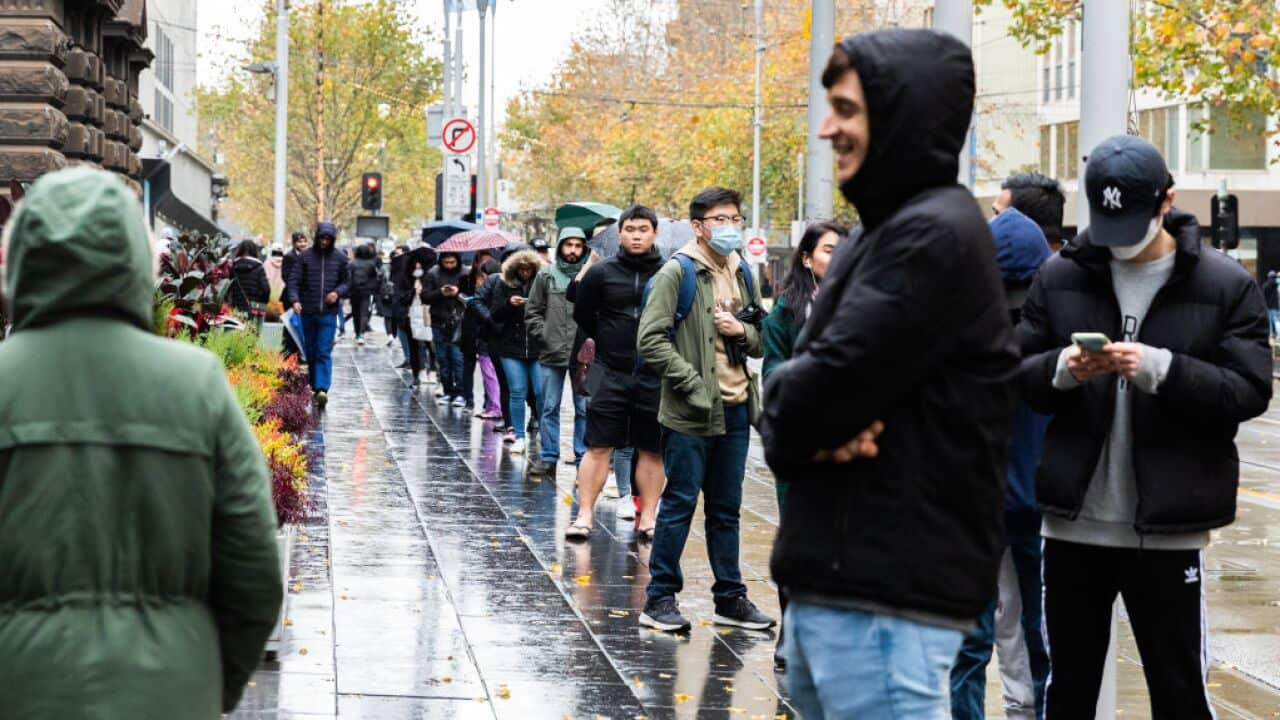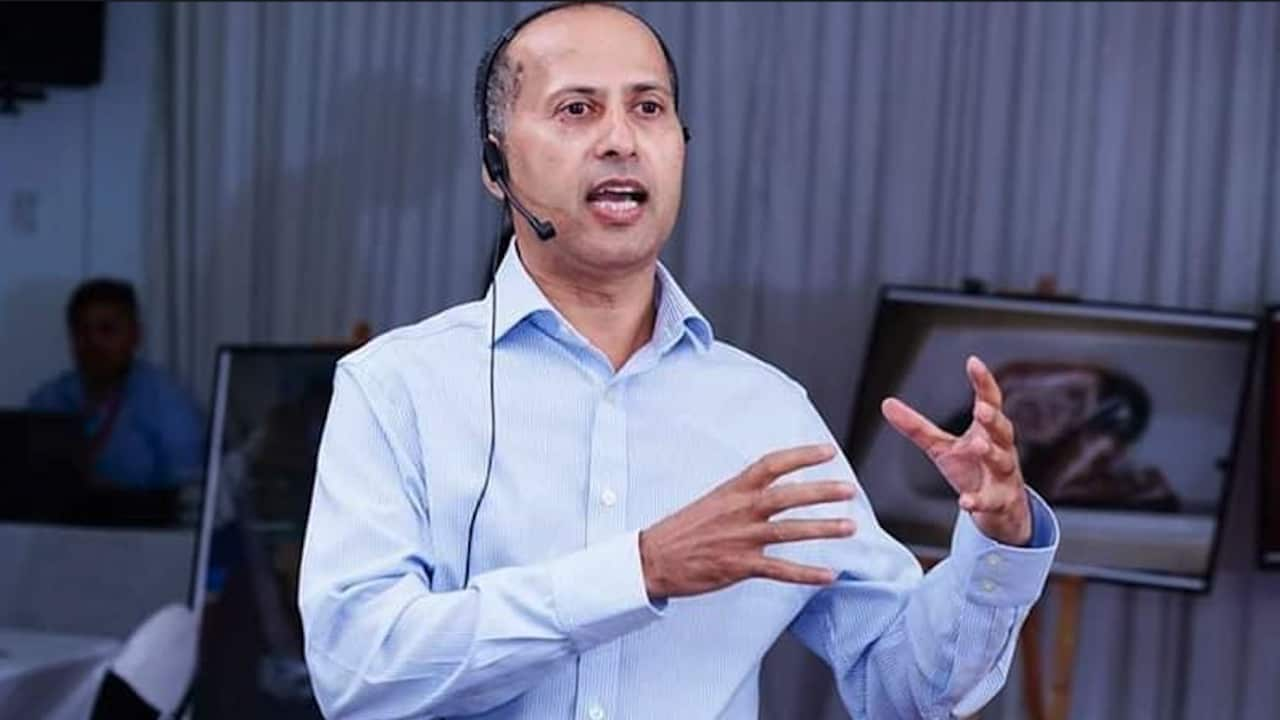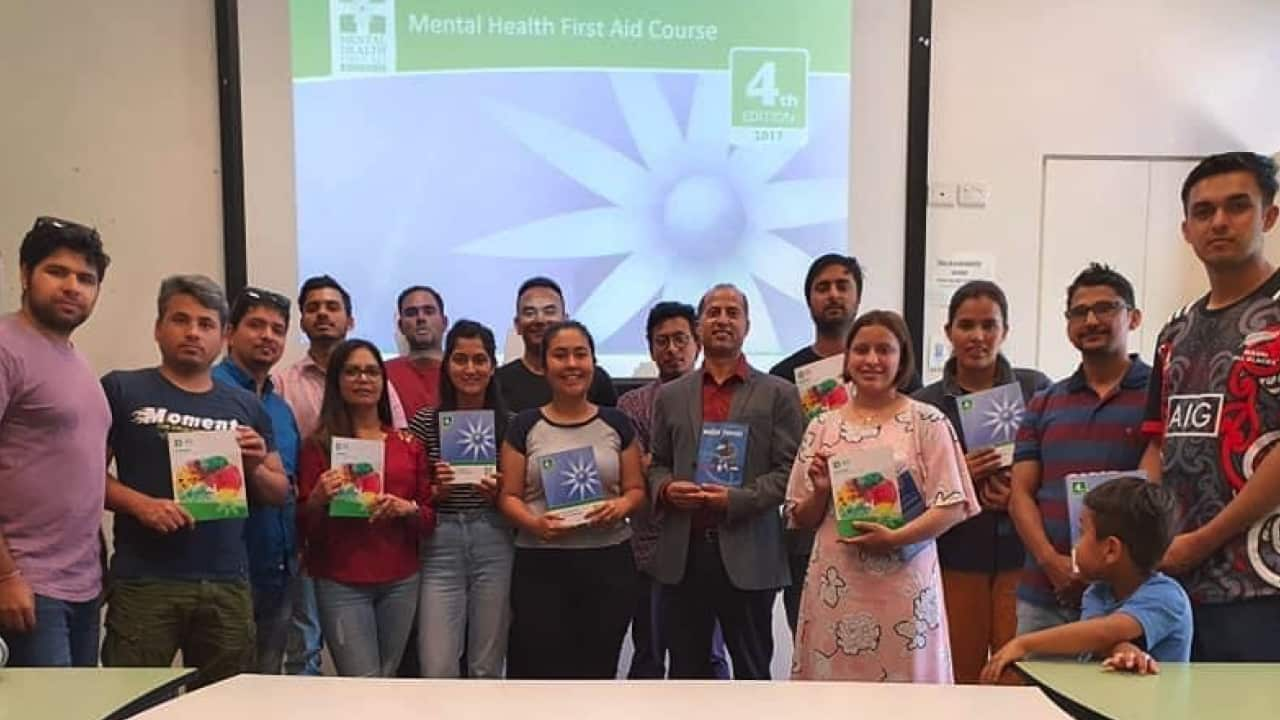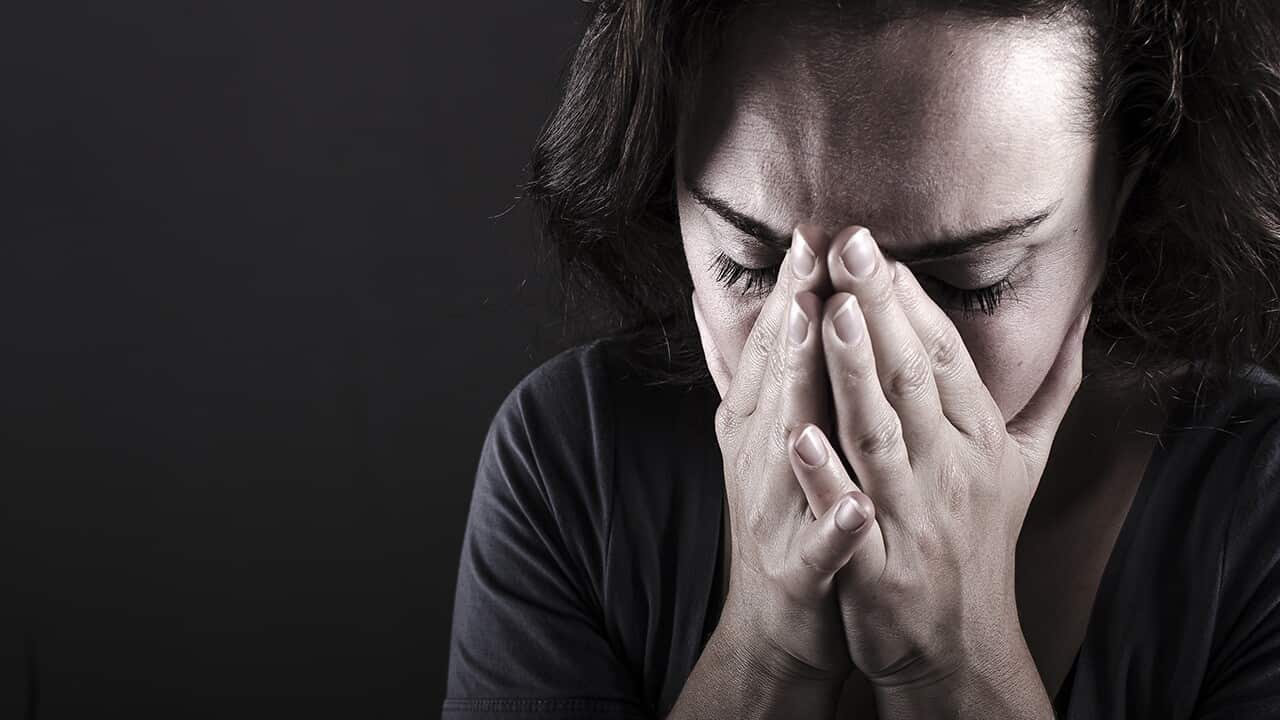Key Points
- Five students from Nepal have this year died by suicide in Australia
- A Nepali rapper has released a music video urging members of his community to seek help
- What research says about suicide among young Australians
When international student Neharika Dahal arrived in Australia in 2017 from Nepal, she experienced a fair share of hardship. The recent Master's graduate in Social Work faced similar problems that many other students from overseas face after moving to a foreign land.
However, academic and employment pressures, combined with homesickness added to the stress Ms Dahal felt during her first six months in Australia. She thought the stress she felt was part of what being a young student was about, but now understands that she was severely depressed.
"I did not know I was depressed until I began to understand and learn about its symptoms," Ms Dahal told SBS Nepali.
While in Nepal, the keen guitar player was active in sports and social work. But once in Australia, study and financial commitments meant Ms Dahal was unable to meet friends or be involved in entertainment activities. "My life completely changed and I was ignoring the issues I was facing. It was so draining that at one point I had suicidal thoughts that lasted a month," she says.
"My life completely changed and I was ignoring the issues I was facing. It was so draining that at one point I had suicidal thoughts that lasted a month," she says.

Neharika Dahal at the Mental Health First Aid Training in Kogarah, Australia Source: Krishna Pokharel/SBS Nepali
"The thought of asking anyone for help never crossed my mind. I was also scared people would ignore me. I couldn't discuss the problem openly with my family either."
Due to the lack of awareness about mental health and the type of support services that are available, Ms Dahal continued to suffer in silence.
She fears many students like her are going through similar problems and is now urging them to talk about what they're going through.
At first, I ignored these issues, to the point, that I ended up having suicidal thoughts.
The cost of silence
Ganga Devi Upreti lost her only son to suicide in 2019. The student from Nepal had only one semester left to complete his degree at the University of Technology in Sydney.
Partly blaming themselves for their son’s death, Ms Upreti says parents should talk to their sons and daughters about education and work pressures in a foreign country, even urging the prospective students not to leave the country straight after completing high school.
“Educational consultancies, rather than thinking about their commissions, should not be making false promises to students and tell them everything is great in Australia,” she says. With many students not wanting to tell their parents overseas about the problems they might be facing, many suffer in silence.
With many students not wanting to tell their parents overseas about the problems they might be facing, many suffer in silence.

Ganga devi and husband kishore who lost their only son Swadesh to suicide. Source: suppiled
That is what their son, Swadesh, did, says Uprety.
“He was severely depressed, but he wasn’t telling us about the real situation so not to worry us.”
“Love and care was missing when he needed it the most.”
The silence about their son’s situation from everyone that knew him is something that concerned the Upreti family a lot.
“His flatmates could have told us about what was happening.”
They even questioned whether their son’s university had any duty of care.
“Shouldn’t the university keep an eye on their students who are from another country?”
The family is now setting up a foundation in memory of their son, to provide counselling and awareness of issues faced by international students in Australia.
Increasing rate of suicide?
According to the Embassy of Nepal in Australia, a total of six Nepali students died by suicide so far in 2020. The five men and one woman were all in their 20s, with the majority of deaths reported in New South Wales, the state with the highest number of Nepali speakers in the country. Ms Durapada Sapkota, deputy chief of mission at the embassy in Canberra, describes the situation as very distressing and concerning. The Coronavirus pandemic is now adding to the problems already faced by students, with many losing their jobs or even facing domestic violence.
Ms Durapada Sapkota, deputy chief of mission at the embassy in Canberra, describes the situation as very distressing and concerning. The Coronavirus pandemic is now adding to the problems already faced by students, with many losing their jobs or even facing domestic violence.

The vast change in lifestyle as an international student can be unnerving for many. Source: Alex McCarthy?Unsplash
Ms Sapkota also highlights the importance of students learning about life, education and work in Australia, before departing Nepal.
Many students are also facing unrealistic expectations "to some extent" from family and friends in Nepal, she adds.
"Many come here with big dreams, after seeing their friends posting photos with lavish cars. When their expectations do not match the reality, some hesitate to talk to their parents and friends and suffer mental health issues."
Mental health, a taboo topic
Sydney rapper Sudin Pokharel aka DA69 understands how difficult it can be for many of his Nepal born compatriots to talk about their mental health. Having lost many friends by suicide, he now wishes he had made some effort to talk to his friends who may have been struggling. Mr Pokharel, who is a well known music and television personality in Nepal, has been living in Australia since 2011. He says it was a phone call from a young student who had contemplated suicide that call inspired him to write a song about suicide awareness.
Mr Pokharel, who is a well known music and television personality in Nepal, has been living in Australia since 2011. He says it was a phone call from a young student who had contemplated suicide that call inspired him to write a song about suicide awareness.

Australia-based Nepali singer Sudin Pokharel Source: Rajish Aryal/SBS Nepali
"That brother suggested to me about writing a song about this issue," he says.
‘In our community, people who commit suicide are often criticised as weak and incapable of fighting with their problems. But as an artist, I do not criticise or hate them.’
In October this year, the rapper released a song called "Mrityu" which literally translates as "death". Through the song, he talks about the importance of not giving up on life.
"I hope this song helps people realise that they are not weak or disliked for how they're feeling. I hope it will motivate people to reach out to others and help in anyway they can."
Pokharel says he's already receiving messages of support from many mental health practitioners in Nepal about his usage of music to talk about such a serious issue that many are hesitant to talk about.
The importance of talking about mental health is something that Ms Neharika Dahal emphasises to anyone who may be feeling down. ‘Such times are difficult, and we tend to feel hopeless and trapped. But please talk to someone close to you, whom you can trust," she says.
‘Such times are difficult, and we tend to feel hopeless and trapped. But please talk to someone close to you, whom you can trust," she says.

Two-thirds of the suicide cases were not in contact with mental health services when they died. Source: iStockphoto
Ms Dahal took up meditation and practised mindfulness and has now transformed her life to complete her university degree.
She says her mother and her mother’s colleague, whom she refers to as “uncle”, also played a vital role in her journey of recovery.
Suicide rate among young Australians
A new analysis published by Orygen Research in the shows 73 per cent of young Australians who died by suicide experienced mental health difficulties before their death.
However, it's reported that two-thirds of them were not in contact with mental health services when they died, stressing the need to ensure that "young people receive adequate mental health services as well as support regarding major psychosocial stressors, such as employment and financial difficulties."
The analysis was based on people aged 10-24 years who lost their lives to suicide in Australia between 2006 and 2015 (2,473 of whom were males).
Last year, in January 2019, Coroner Audrey Jamieson from Victoria called for improved strategies to help international students with mental health services in the state.
The suicide of a 24-year-old Chinese national and Melbourne University student in March 2016 led to a larger investigation about the suicide of other international students.
In November this year, Prime Minister Scott Morrison unveiled the with a new whole-of-government approach to early suicide prevention in Australia.
It aims to develop workforces in all sectors including family courts, employment services, schools, workplaces, and family and social services for early response.
Further consultation is said to occur over the coming weeks to inform the Final Advice.
Readers seeking support with mental health can contact - : 1300 22 4636, : 13 11 14, : 1300 659 467 and for children between the age of 5 to 25 : 1800 55 1800.
More information is available at Beyond Blue.org.au. supports people from culturally and linguistically diverse backgrounds.





